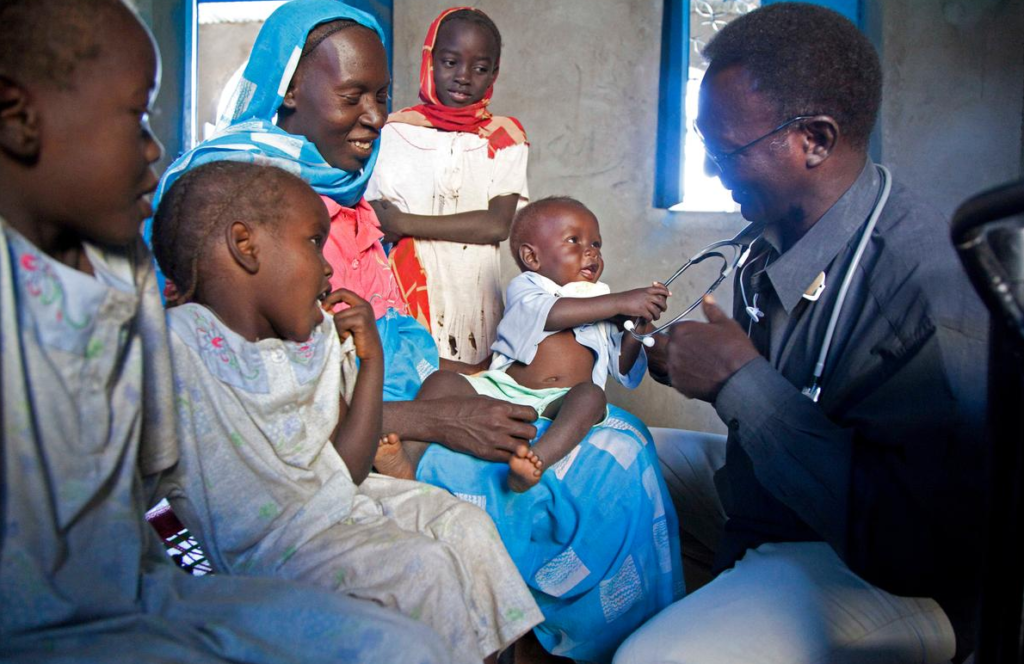
“WHO’s Agenda” The World Health Organization (WHO), as the premier international health agency, spearheads efforts to address multifaceted challenges and opportunities in global health. As we embark on the year 2024, a closer examination of WHO’s focal areas provides insight into its mission, strategies, and impact.
Understanding WHO’s Agenda Mandate and Mission
WHO’s Core Mandate
At its core, WHO’s agenda is tasked with the monumental responsibility of safeguarding global health, fostering equity, and coordinating international health responses.
Mission Statement
WHO’s agenda and mission revolves around achieving the highest attainable standard of health for all people, guided by principles of universality, equity, and social justice.
Key Focus Areas for WHO’s agenda 2024
1. Pandemic Preparedness and Response
The lingering threat of pandemics necessitates proactive measures to enhance global preparedness and response capacities.
– Strengthening Early Warning Systems
– Facilitating Equitable Access to Vaccines and Therapeutics
– Enhancing Coordination in Pandemic Response Efforts
2. Universal Health Coverage (UHC)
Ensuring that all individuals have access to essential health services without facing financial hardship remains a cornerstone of WHO’s agenda.
– Advocating for UHC Policies and Legislation
– Strengthening Health Systems Infrastructure
– Promoting Community Engagement in UHC Implementation
3. Addressing Non-Communicable Diseases (NCDs)
The rising prevalence of non-communicable diseases poses a significant health challenge globally, demanding comprehensive strategies for prevention and control.
– Implementing Tobacco Control Measures
– Promoting Healthy Diets and Physical Activity
– Enhancing Screening and Treatment Services for NCDs
4. Mental Health and Well-being
Recognizing the profound impact of mental health on overall well-being, WHO’s agenda prioritizes initiatives aimed at promoting mental health and ensuring access to quality mental health services.
– Advocating for Mental Health Integration into Primary Healthcare Systems
– Combatting Stigma and Discrimination Associated with Mental Illness
– Providing Psychosocial Support in Humanitarian Settings
5. Sustainable Development Goals (SDGs)
Aligning with the broader global development agenda, WHO works towards achieving health-related Sustainable Development Goals (SDGs) to promote inclusive and sustainable development.
– Advancing Maternal and Child Health
– Combatting Infectious Diseases and Antimicrobial Resistance
– Strengthening Health Systems to Achieve SDG 3 Targets
Cross-Cutting Themes and Initiatives
1. Health Equity and Social Determinants of Health
Addressing underlying determinants of health disparities and promoting equity in health outcomes are central to WHO’s efforts in 2024.
– Tackling Structural Inequalities in Access to Healthcare
– Empowering Marginalized Communities to Advocate for Health Rights
– Promoting Gender Equity in Health Leadership and Decision-making
2. Climate Change and Health
Recognizing the intricate linkages between climate change and public health, WHO integrates climate action into its health agenda to mitigate environmental health risks.
– Mitigating Climate-related Health Impacts Through Adaptation Measures
– Advocating for Policies to Reduce Air Pollution and Promote Clean Energy
– Building Resilience in Health Systems to Climate-related Disasters
3. Digital Health and Innovation
Harnessing the potential of digital technologies and innovation offers transformative opportunities to improve healthcare delivery and health outcomes globally.
– Promoting the Use of Telemedicine and E-Health Solutions
– Strengthening Digital Health Infrastructure and Data Governance
– Fostering Collaborations with Tech Industry for Health Innovation
Overcoming Challenges and Seizing Opportunities
1. Resource Mobilization and Financing
Securing sustainable funding streams and optimizing resource allocation are paramount to effectively implement WHO’s ambitious agenda in 2024.
2. Strengthening Multisectoral Collaboration
Addressing complex health challenges necessitates collaboration across diverse sectors and stakeholders, requiring enhanced coordination and partnerships.
3. Enhancing Data Collection and Analysis
Investing in robust health information systems and data analytics capabilities enables evidence-based decision-making and monitoring of progress towards health targets.
4. Ensuring Political Will and Commitment
Advocating for health as a political priority and garnering support from policymakers are essential to drive transformative changes in global health governance.
As WHO navigates the intricate landscape of global health in 2024, its commitment to advancing health for all remains steadfast. By prioritizing key focus areas, fostering innovation, and overcoming challenges through collective action, WHO continues to serve as a beacon of hope in promoting a healthier, more equitable world.
